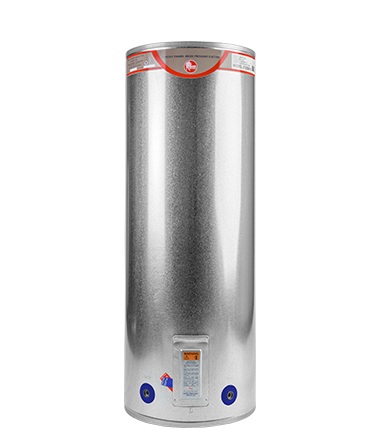When to Replace Your Hot Water Cylinder: Signs NZ Homeowners Should Know
Hot water cylinders are an essential part of your home, ensuring that you have a reliable supply of hot water for showers, cooking, cleaning, and more. However, like all appliances, hot water cylinders don’t last forever. Over time, wear and tear can reduce their efficiency, and they may eventually need to be replaced. As a homeowner in New Zealand, it’s important to know when to replace your hot water cylinder to avoid inconvenient breakdowns or rising energy costs. Here are some key signs to watch for that indicate it may be time to replace your hot water cylinder.
1. Age of the Hot Water Cylinder
The age of your hot water cylinder is one of the first factors to consider when determining whether it’s time for a replacement. Typically, most hot water cylinders last between 8 to 12 years, depending on the type and maintenance. If your cylinder is approaching or has exceeded its expected lifespan, it’s a good idea to start thinking about a replacement, even if there aren’t visible issues yet. Older units may become less efficient, leading to higher energy bills and a higher likelihood of breakdowns. Click here for more information replacing hot water cylinder
2. No Hot Water or Inconsistent Supply
One of the most obvious signs that your hot water cylinder may need replacing is if you’re no longer getting hot water or if the supply is inconsistent. If the water is lukewarm or cold, and the thermostat settings aren’t helping, it could be due to a failing heating element, a broken thermostat, or a more serious issue like a leaking tank. If a professional repair isn’t feasible or cost-effective, replacing the cylinder might be the better option.
3. Water Leaks or Corrosion
Water leaks or signs of corrosion around your hot water cylinder are clear indicators that something is wrong. A leaking cylinder could mean that the tank itself is rusting or deteriorating, which can lead to more extensive damage if not addressed. Corrosion around the base or on the pipes can also affect the performance of the unit, making it less efficient. In these cases, it’s important to act quickly to avoid further damage to your property. If the leak is extensive, a replacement may be the safest and most effective solution.
4. Rising Energy Bills
If you notice that your energy bills have been rising without a change in your household usage, your hot water cylinder could be the culprit. Over time, cylinders can lose efficiency due to aging, sediment buildup, or failing components like the thermostat or heating element. As the system works harder to heat water, it consumes more energy. Replacing an old, inefficient cylinder with a newer, more energy-efficient model can help reduce your monthly bills and lower your overall energy consumption.
5. Strange Noises or Odors
Strange noises, such as popping, banging, or gurgling sounds, coming from your hot water cylinder can indicate a problem. These noises are often caused by sediment buildup in the tank, which can reduce the efficiency of the heating process and even cause damage over time. If these sounds persist, it could be a sign that your cylinder is nearing the end of its lifespan and needs replacing. Additionally, unpleasant odors or a metallic taste in the water may be due to rust or other issues inside the tank.
6. Poor Water Pressure
Low water pressure, particularly when using hot water, could indicate a problem with the hot water cylinder. This can be caused by a buildup of sediment or mineral deposits inside the tank, which restricts the flow of water. While it might be possible to flush the tank and clear some of the buildup, in many cases, the problem will return as the cylinder ages. If water pressure continues to be an issue, it may be time to replace the cylinder.
7. Frequent Repairs
If you find yourself calling a plumber regularly to repair your hot water cylinder, it’s a sign that the system is deteriorating and may need replacing soon. Constant repairs can add up in cost, and often, these issues will continue to recur, especially if the cylinder is nearing the end of its life. At this point, replacing the cylinder could be a more cost-effective solution than continuing to make repairs.
8. Unusual Water Quality
If you notice that the hot water coming from your taps is discolored, has a strange odor, or has an unusual taste, this can indicate a problem with your hot water cylinder. Rust or other contaminants inside the tank can affect the water quality. If the water quality doesn’t improve after flushing the cylinder, a replacement may be necessary.
Conclusion
Your hot water cylinder plays a vital role in your daily comfort, so it’s important to recognize when it’s time for a replacement. If your cylinder is aging, showing signs of leaks or corrosion, providing inconsistent hot water, or costing you more in energy bills, it may be time to invest in a new system. Replacing your hot water cylinder before it fails can help prevent inconvenience and ensure that your home continues to have a reliable supply of hot water for years to come.




Comments
Post a Comment